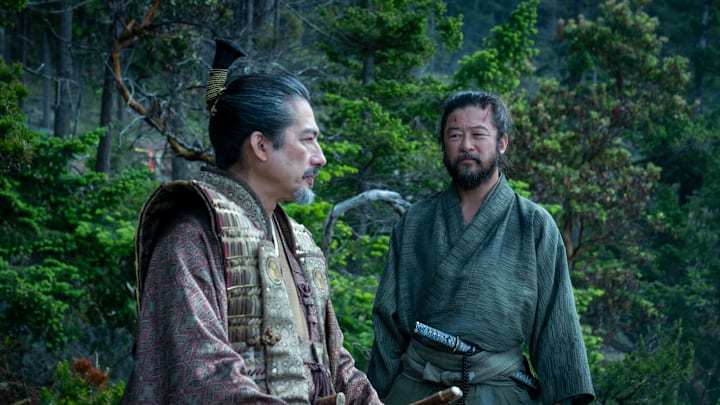Shōgun was an incredible book and television series about a very specific period in Japanese history, based on the novel Shōgun by James Clavell. The story is very loosely based on real events in the early 17th century.
The character of Lord Toranaga, portrayed brilliantly by Hiroyuki Sanada, is based on a real warlord by the name of Tokugawa Ieyasu. Like Toranaga at the end of the FX miniseries, Tokugawa did actually unite Japan and become Shogun in the early 1600s. But Clavell was writing a novel, and he did not stick too closely to historical fact.
During the final episode of the show, Lord Toranaga explains to his doomed vassal Kashigi Yabushige (Tadanobu Asano) what the outcome of all of Toranaga's machinations will be. Toranaga had been several moves ahead of his opponents at all times, Much like a grandmaster chess player, he sacrificed his knight (Hiromatsu) and his queen (Lady Mariko) to trap his enemy so that Torananga would eventually win.
As Toronaga speaks, we see his vision of what will happen play out in his mind, which is a great way to wrap up the series without needing to play it out over several more episodes. Clavell's book wraps up in a similar way. Toronaga lays out the inevitable outcome of his machinations without Clavell having to add more pages to an already massive tome.
The show, however, left out a couple of interesting historical details. First: in 1639, the Shogunate (Tokugawa's descendants) kick the Portuguese out of Japan and make Japanese Christians renounce their faith of be executed, fearing that Christians would pay more homage to the Church than to the Shoganate. While the Dutch were later allowed to occupy a tiny colony on an island off the ocast of Japan, they were the only European county allowed access to the country, and only on a very limited basis.
Something else the show largely leaves out is that the Japanese had access to firearms in the form the matchlock guns since the arrival of the Portuguese in 1543. The Japanese even manufactured guns, which had changed the tactics of warfare in Japan in the 16th century. Because the matchlock has a long load time, a cumbersome firing method, and limited accuracy, it fell out of use during the following centuries, which were mostly peaceful. Guns were used for hunting and less for war during this stretch.
In reality, it might have been hard for someone in Toronaga's position to predict these events, though Clavell did cover them in a brief summary in his Shōgun novel. The show could have added these interesting facts before cutting to the closing credits.
The Portuguese, the Catholic Church, and the threat of guns all played a part in how Toranaga positioned himself for victory, but they were all kind of left as loose ends as the showed ended. There is very little to complain about in this fantastic adaptation of Clavell's novel, so the producers can be forgiven for this oversight.
To stay up to date on everything fantasy, science fiction, and WiC, follow our all-encompassing Facebook page and Twitter account, sign up for our exclusive newsletter and check out our YouTube channel.
